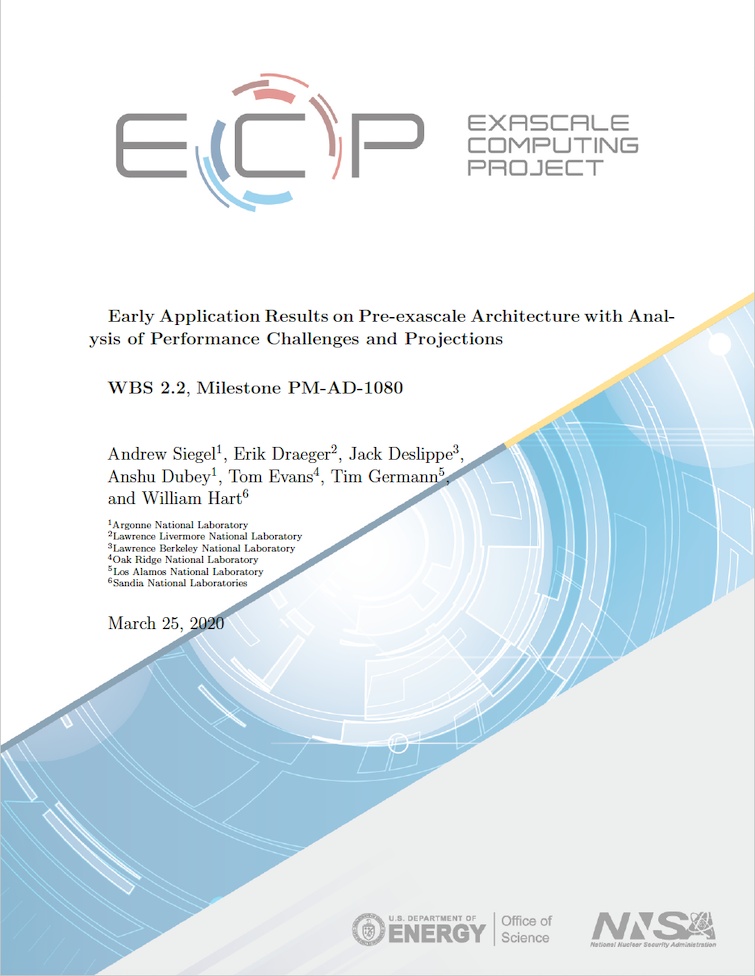Alumni Coauthor Exascale Computing Progress Report

Two alumni of the Department of Energy Computational Science Graduate Fellowship (DOE CSGF) are among authors of a report assessing the progress of projects aimed at preparing software tools and algorithms for the next generation of high-performance computing (HPC) systems.
Jack Deslippe, leader of the Application Performance Group at Lawrence Berkeley National Laboratory’s National Energy Research Scientific Computing Center (NERSC), and Timothy Germann of the Physical and Chemical Materials Group at Los Alamos National Laboratory, collaborated with five other DOE lab experts to compose the report, “Early Application Results on Pre-exascale Architecture with Analysis of Performance Challenges and Projections.”
Exascale computers, expected to come on line in the next few years, will be theoretically capable of a quintillion – a one with 18 zeros after it – scientific calculations per second, about five times faster than today’s top supercomputers.
The report summarizes progress on 30 Application Development subprojects in DOE’s Exascale Computing Project. ECP is designed to prepare software tools so researchers can quickly get their scientific codes onto the powerful new HPC systems.
Deslippe, a 2010 fellowship alumnus, oversees NERSC’s programs to prepare applications for Perlmutter, a pre-exascale HPC system scheduled for delivery at the center in 2021. Perlmutter represents a next step toward exascale, since it will combine different types of the latest computer processors and accelerators.
Germann, a 1995 alumnus, leads the ECP’s Co-Design Center for Particle Applications (CoPA), targeting particle-based programs used in plasma physics, cosmology and other disciplines. CoPA researchers work with a handful of ECP-chosen applications, helping connect developers with vendors and computer science experts to consider the interplay of algorithms and hardware.
The report summarizes committee reports evaluating each subproject’s progress in porting their code or codes to existing systems considered precursors to exascale machines.


